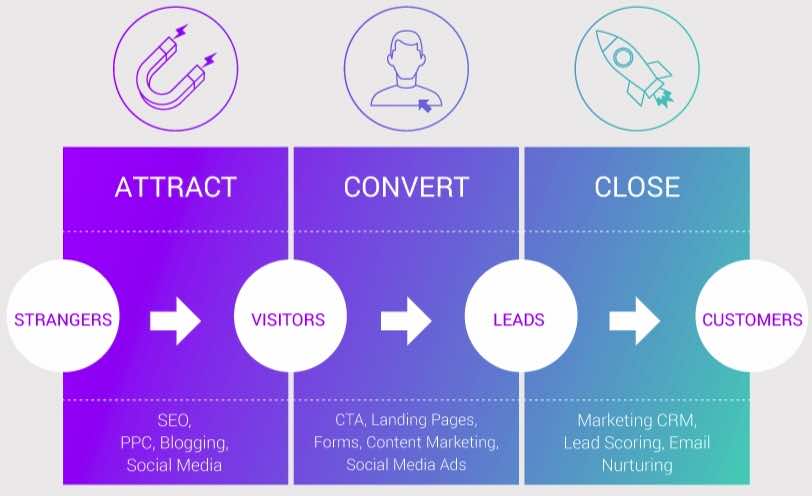For any startup business, trying to get found in a highly competitive world is anything but an easy task. Chances are, people aren’t going to know your business even exists and you won’t have a large team that all specialise in different areas to assist with growth - but that won’t put you off from trying to get your startup noticed.
We’re all aware of the tactics that have been used in the past, primarily when starting from scratch. Previously, nobody could be blamed for investing in advertisements through cold calling, purchasing email lists and many more archaic methods. That’s all temporary and short-term focussed. And expensive. Think about it as rent - when you stop paying the rent for the ad-space, you no longer have access to the SERP real estate. Now, these methods not as effective and startups utilising those methods won’t actually be contributing towards business growth.
This isn’t just because it’s expensive for your new startup to get involved, but also would-be customers are more attuned than ever at filtering past and ignoring advertisements.
However, the alternative to this outdated method is that you and your startup business can create marketing content that your target audience enjoys, finds useful and brings them to your site naturally. That’s the beauty of inbound marketing - you never have to fight for your potential customer’s attention - they’ve sought out relevant content and you’ve provided it.
Here’s why inbound marketing is essential for startups.
We’re all aware of the tactics that have been used in the past, primarily when starting from scratch. Previously, nobody could be blamed for investing in advertisements through cold calling, purchasing email lists and many more archaic methods. That’s all temporary and short-term focussed. And expensive. Think about it as rent - when you stop paying the rent for the ad-space, you no longer have access to the SERP real estate. Now, these methods not as effective and startups utilising those methods won’t actually be contributing towards business growth.
This isn’t just because it’s expensive for your new startup to get involved, but also would-be customers are more attuned than ever at filtering past and ignoring advertisements.
However, the alternative to this outdated method is that you and your startup business can create marketing content that your target audience enjoys, finds useful and brings them to your site naturally. That’s the beauty of inbound marketing - you never have to fight for your potential customer’s attention - they’ve sought out relevant content and you’ve provided it.
Here’s why inbound marketing is essential for startups.
Why Entrepreneurs Avoid Marketing Altogether
As an entrepreneur looking to create a splash, there are already hundreds of tasks that need your attention - which is why inbound marketing is often the afterthought. Your attention will be on developing your product, the financial side of things, logistics and so much more.
Marketing to some entrepreneurs is seen as an out-of-budget expense and believe they’ll be ready to market once their product or service is ready. The downfall here is that it’ll already be too late and that isn’t best practice any more.
Marketing to some entrepreneurs is seen as an out-of-budget expense and believe they’ll be ready to market once their product or service is ready. The downfall here is that it’ll already be too late and that isn’t best practice any more.
Why Inbound Marketing is a Necessity
The digital space is evolving, as is human behaviour. That’s where inbound marketing steps in and excels. This is down to the methods used in this type of marketing as you always adapt to how real people are behaving. Now, you need to start with developing the marketing framework for your products and services and this is done by creating compelling content which keeps your users engaged and informed at all times.
Inbound marketing is an essential strategy for lead generation and it goes hand in hand with startup businesses by helping them get long-term leverage. To prove that, co-founder of HubSpot, Dharmesh Shah, is an angel investor in more than 50 startups. When one of the founders of HubSpot and inbound marketing is so heavily engrossed in startups and investing in them to succeed, it’s clear that it’s a technique which can work when done right.
“The day your startup starts building a product, it should start building an audience for that product. Inbound gets you going, so you can get growing.” - Dharmesh Shah.
Having an inbound marketing architecture is crucial for any startups, no matter the stage: pre-seed, bootstrapped, funded, etc. That’s the importance of inbound marketing for startups and growth for businesses in general. This technique helps your startup to attract interested visitors towards your website. It helps to capture prospects early in the funnel as leads before closing those leads into happy customers. Eventually, those customers are turned into promoters that will help your startup grow by spreading the word.
How do you know who your target audience is? You create buyer personas. This is a semi-fictional representation of your ideal customers based on market research and real data about your existing customers. These provide tremendous structure and insight for your startup business as detailed personas will help you to determine where you should focus your time. Through this, your startup business can attract the most valuable visitors and by having the right audience to target, you get leads and customers that all contribute towards business growth.
Inbound marketing is an essential strategy for lead generation and it goes hand in hand with startup businesses by helping them get long-term leverage. To prove that, co-founder of HubSpot, Dharmesh Shah, is an angel investor in more than 50 startups. When one of the founders of HubSpot and inbound marketing is so heavily engrossed in startups and investing in them to succeed, it’s clear that it’s a technique which can work when done right.
“The day your startup starts building a product, it should start building an audience for that product. Inbound gets you going, so you can get growing.” - Dharmesh Shah.
Having an inbound marketing architecture is crucial for any startups, no matter the stage: pre-seed, bootstrapped, funded, etc. That’s the importance of inbound marketing for startups and growth for businesses in general. This technique helps your startup to attract interested visitors towards your website. It helps to capture prospects early in the funnel as leads before closing those leads into happy customers. Eventually, those customers are turned into promoters that will help your startup grow by spreading the word.
How do you know who your target audience is? You create buyer personas. This is a semi-fictional representation of your ideal customers based on market research and real data about your existing customers. These provide tremendous structure and insight for your startup business as detailed personas will help you to determine where you should focus your time. Through this, your startup business can attract the most valuable visitors and by having the right audience to target, you get leads and customers that all contribute towards business growth.
The Importance of Helpful, Informative Content
Inbound marketing uses content as its centrepiece for all of your marketing efforts as it’s all about creating quality content for your would-be customers. For entrepreneurs and startup businesses seeking growth, it’s incredibly important to constantly and consistently publish the content you create.
Not only that, but it’s also equally as important to measure efforts as to what works, what doesn’t and then learn from both. This then helps you to optimise content a lot better going ahead.
Types of content for startup businesses to create to attract customers include blogs, infographics, videos, podcasts, presentations, eBooks, case studies, webinars and anything else informative and useful. The more regularly content is being produced, the longer you’re keeping prospects engaged with your business which helps with growth in the long run.
However, the only way target audiences can stay informed and engaged is by creating content with topics that they genuinely find interesting. At any one time, less than 5% of website browsers will be in a position to decide whether they want to purchase something. The other 95%+ are still in research mode.
That’s the difference between why inbound marketing is essential compared to other marketing techniques as there’s less guesswork involved. Inbound marketing ensures you have the target audience in mind and all content can be catered towards them and their challenges.
By creating content that is tailored to personas and provides solutions, startup businesses can stand out as industry leaders by continually providing value every time.
Not only that, but it’s also equally as important to measure efforts as to what works, what doesn’t and then learn from both. This then helps you to optimise content a lot better going ahead.
Types of content for startup businesses to create to attract customers include blogs, infographics, videos, podcasts, presentations, eBooks, case studies, webinars and anything else informative and useful. The more regularly content is being produced, the longer you’re keeping prospects engaged with your business which helps with growth in the long run.
However, the only way target audiences can stay informed and engaged is by creating content with topics that they genuinely find interesting. At any one time, less than 5% of website browsers will be in a position to decide whether they want to purchase something. The other 95%+ are still in research mode.
That’s the difference between why inbound marketing is essential compared to other marketing techniques as there’s less guesswork involved. Inbound marketing ensures you have the target audience in mind and all content can be catered towards them and their challenges.
By creating content that is tailored to personas and provides solutions, startup businesses can stand out as industry leaders by continually providing value every time.
Following the Inbound Methodology for Startup Business Growth
The inbound methodology is the marketing approach focused on attracting customers through relevant and helpful content and interactions. All of the content you create should acknowledge your target audience’s challenges and provide them with solutions all the time. When you look at the bigger picture, this content guides the consumers through the journey of becoming aware of your business, right through to evaluation and purchasing your product or services.

What are the stages in the inbound methodology? The methodology is focused on attracting prospects, converting them into leads, closing them into customers and then delighting them which turns them into promoters. This helps to spread the word and the more people visiting your startup business’ website, the better you’ll grow. At the attract stage, it’s all focused on aspects that help to attract the right type of audience so the focus falls on website optimisation, regularly blogging, putting importance towards social media accounts and SEO. By doing all of the aspects mentioned, strangers then become visitors towards your startup business and they’re well on their way through the important journey.
At the convert stage, the focus needs to fall on forms, calls-to-action and landing pages. The reason behind this is you need to convert the visitors into leads so now, you can collect their information through forms, for example. The way to do this, though, is by clearly showing you have a solution to the challenges your target audience is facing so they stick with you.
Landing pages are also an important part of inbound marketing as they help guide leads towards conversion, while they help to capture their information through forms. CTAs, on the other hand, entices your audience to take action by clicking on a button to drive visitors to the next step in the conversion process.
Once the new audience has been attracted and the right visitors have now become leads, the time is right to close the leads and turn them into customers - which is great for startup businesses. At this point, consumers are weighing up their options and deciding on the purchase. Therefore, the goal here is to make them visualise using your product or service so they don’t feel the need to go elsewhere and with emails, for examples, plenty of emotion can be leveraged to entice them further.
Once the purchase has been made, fantastic. However, even if you’re a startup or not, that’s not the end of the journey. That’s where HubSpot’s Flywheel comes in as the delight stage is all about providing value at the post-conversion stage. The goal here is to continue providing remarkable content to users that make their interaction with your startup business as brilliant as possible.
The hope is that they tell other people and connections about their experience with you - so they send them to you instead of the competition whether it’s through written content or through inbound video marketing.
At the convert stage, the focus needs to fall on forms, calls-to-action and landing pages. The reason behind this is you need to convert the visitors into leads so now, you can collect their information through forms, for example. The way to do this, though, is by clearly showing you have a solution to the challenges your target audience is facing so they stick with you.
Landing pages are also an important part of inbound marketing as they help guide leads towards conversion, while they help to capture their information through forms. CTAs, on the other hand, entices your audience to take action by clicking on a button to drive visitors to the next step in the conversion process.
Once the new audience has been attracted and the right visitors have now become leads, the time is right to close the leads and turn them into customers - which is great for startup businesses. At this point, consumers are weighing up their options and deciding on the purchase. Therefore, the goal here is to make them visualise using your product or service so they don’t feel the need to go elsewhere and with emails, for examples, plenty of emotion can be leveraged to entice them further.
Once the purchase has been made, fantastic. However, even if you’re a startup or not, that’s not the end of the journey. That’s where HubSpot’s Flywheel comes in as the delight stage is all about providing value at the post-conversion stage. The goal here is to continue providing remarkable content to users that make their interaction with your startup business as brilliant as possible.
The hope is that they tell other people and connections about their experience with you - so they send them to you instead of the competition whether it’s through written content or through inbound video marketing.
SEO for Startups
Search engine optimization (SEO) is another vital component of inbound marketing. The aim is to bring in more leads and consumers then startups need to take advantage of search engines, especially since 93% of all online experiences begin with a search engine. Startups can’t afford to miss out on that many opportunities to bring in plenty of new leads so content and your website needs to be optimised for search engines like Google and Bing.
The most effective SEO technique, however, is content creation. Again, it all falls down to how much quality content is produced and promoted. The more this is done, the better your startup business will rank in the search engines. There doesn’t need to be a complex SEO strategy in place to achieve those results and generate more leads as the focus should fall on creating quality content that emphasizes phrases and keywords from your relevant industry. So, when you’re creating link-optimized content that addresses your audience’s biggest challenges, you’re working towards creating content that adds plenty of value.
The most effective SEO technique, however, is content creation. Again, it all falls down to how much quality content is produced and promoted. The more this is done, the better your startup business will rank in the search engines. There doesn’t need to be a complex SEO strategy in place to achieve those results and generate more leads as the focus should fall on creating quality content that emphasizes phrases and keywords from your relevant industry. So, when you’re creating link-optimized content that addresses your audience’s biggest challenges, you’re working towards creating content that adds plenty of value.

Emails in Inbound Marketing for Startups
Email marketing is another incredibly popular method in inbound marketing that startups take advantage of. This is because it’s an easy way to stay connected to keep leads and customers informed all the time.
Startups are also able to drive sales while it’s also to reach users that are on the go with mobile optimisation. The biggest benefit is that email marketing integrates well with inbound tactics and it’s also rather inexpensive, so personalised and highly-targeted content can be delivered through email.
All in all, email helps startups improve lead generation while also nurturing leads. It’s also another beneficial way of keeping their interest as you can also provide valuable content through emails and not just blogs and downloads.
Startups are also able to drive sales while it’s also to reach users that are on the go with mobile optimisation. The biggest benefit is that email marketing integrates well with inbound tactics and it’s also rather inexpensive, so personalised and highly-targeted content can be delivered through email.
All in all, email helps startups improve lead generation while also nurturing leads. It’s also another beneficial way of keeping their interest as you can also provide valuable content through emails and not just blogs and downloads.
Social Media for Startups
Social media is another valuable channel used in inbound marketing for startups. It’s the perfect way to reach out to consumers that might already be interested in your product or services and could be a good fit - or even a platform for self-promotion and raising brand awareness. It’s also great for delighting existing customers and turning them into promoters.
Through channels like Facebook, Twitter, Instagram and LinkedIn, you can promote content to reach new audiences you never knew existed for your startup business, by keeping a strong organic feed and paying to promote popular content.
The key, however, is to remain social by responding to visitor questions, comments, and feedback. This helps to establish better relationships with followers and can also help to gain important insight into their needs and motivations.
However, don’t make the mistake of trying to be everywhere at once especially since there are many other tasks to focus on. Instead, only focus on the channels where most of your buyers spend their time and where you can make the biggest impact. This is done through research while targeting your social media efforts helps to save time, money and maximises lead generation success.
Through channels like Facebook, Twitter, Instagram and LinkedIn, you can promote content to reach new audiences you never knew existed for your startup business, by keeping a strong organic feed and paying to promote popular content.
The key, however, is to remain social by responding to visitor questions, comments, and feedback. This helps to establish better relationships with followers and can also help to gain important insight into their needs and motivations.
However, don’t make the mistake of trying to be everywhere at once especially since there are many other tasks to focus on. Instead, only focus on the channels where most of your buyers spend their time and where you can make the biggest impact. This is done through research while targeting your social media efforts helps to save time, money and maximises lead generation success.
Why Inbound Marketing is Perfect for Startups?
In the end, inbound marketing helps to bring more consumers to startups - and businesses of any size - through relevant, helpful content. This saves plenty of time and hassle towards finding and targeting adverts at new leads that might not be interested in the first place. There’s so much that other forms of marketing simply can’t provide as it helps to benefit you in the long run. Through content, social media marketing, SEO and other techniques, inbound marketing is the perfect fit for entrepreneurs and startup businesses looking to make a statement.Growth Hackers is one of the top inbound marketing companies out there. We use content, social media, SEO and email marketing as well as data, conversion rate optimization and product optimization to grow businesses. We help these businesses with automation, lead generation and sales. If you want to generate more leads, automate your processes and increase your revenue, give Growth Hackers a shoot, so, we can start working on your growth strategy and execution together.





3 Comments
One of the best articles on inbound marketing you can find online. This is so complete, insightful and full of tips. Thanks for sharing.
I totally agree with you: inbound marketing is an effective strategy for startups but not only. This post is really awesome and very informative, thanks for sharing this great article.
Thanks for the great tips! I couldn’t agree more that inbound marketing is the most cost-effective form of marketing, especially for startups, and yet it’s still often overlooked, so this post is especially valuable.